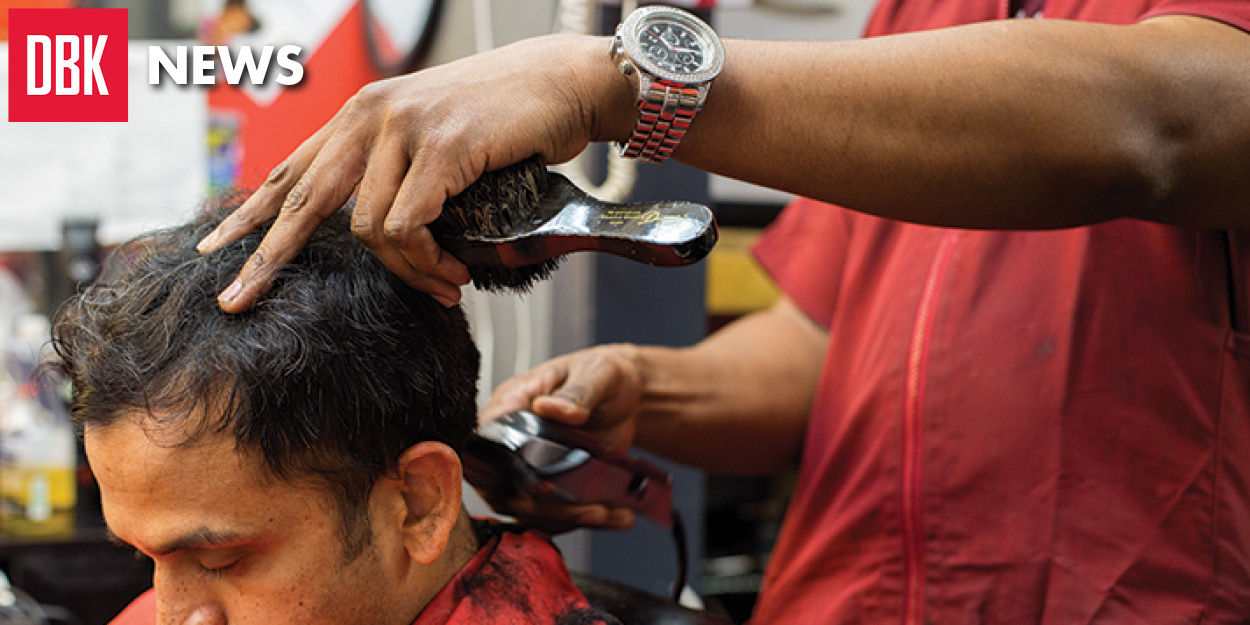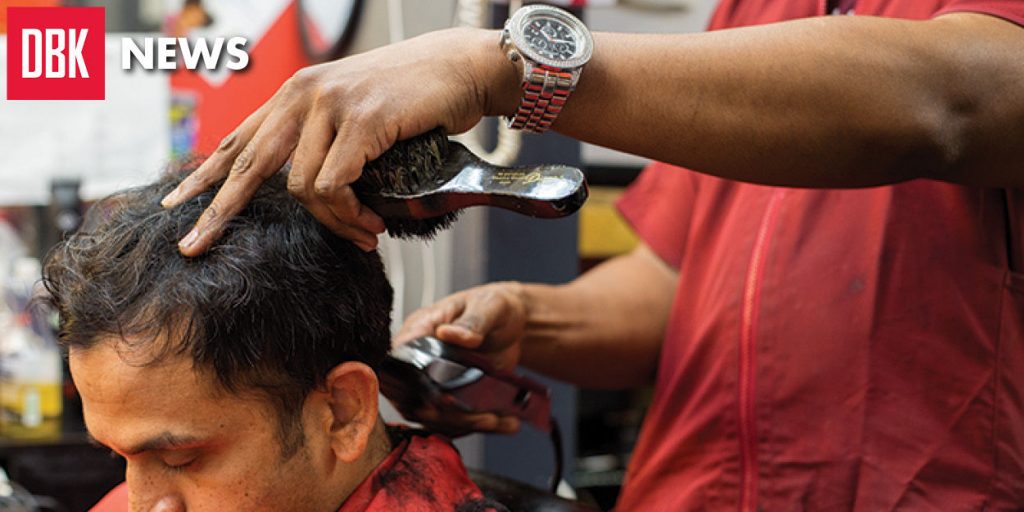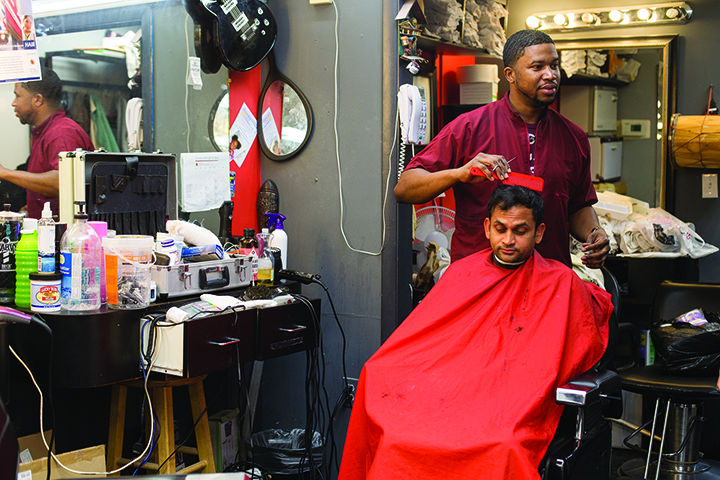Every day Fred Spry goes into work, he sees about 50 different people for haircuts or shaves, and has grown close to many of them.
The 37-year-old barber from Chevy Chase has owned The SHOP in Hyattsville for 13 years, but he never thought he would also be advocating his customers’ health while doing their hair. He never thought he’d potentially be saving their lives.
“[Colorectal cancer] is a silent killer,” Spry said. “A lot of guys, they don’t go see regular doctors, they don’t go to regular checkups, and they feel more comfortable talking to us about everything in their lives compared to someone else.”
Spry’s barbershop is one of four in Prince George’s County partnered with this university’s Maryland Center for Health Equity in the Health Advocates In-reach and Research — or HAIR — initiative. The partnership aims to help prevent disease and promote wellness, primarily among the black community.
This month, the program received a $200,000 grant from the Cigna Foundation, a health services company, to help expand outreach to 10 hair shops in the county to promote awareness and prevent colorectal cancer. The center will send in staff and students to educate the hairstylists about the disease and how to help the cause by relaying the information to customers.
Mortality rates and prevalence for colorectal cancer are the highest among African-Americans out of every racial group in the country, according to the American Cancer Society.
National guidelines call for everyone in the country to have a colorectal cancer screening at the age of 50, but for African-Americans, early onset of the disease is predominantly at age 45, said Christina Stasiuk, national medical director for health disparities at the Cigna Foundation. Stasiuk was a part of the committee that presented the grant to the center earlier this month.
“Part of my area of accountability is really to close the gap in health disparities,” Stasiuk said. “Not only to improve the health for all of our customers, but to make sure that when we roll out programs, we’re considering every group.”
As with all cancer, the key to managing this disease is to detect it early, Stasiuk said.
“Things have gotten better in general for the overall U.S. population, but for African-Americans, it has not gotten better,” said Stephen Thomas, Center for Health Equity director. “It is with that recognition that everyone is not being reached that we were able to convince Cigna it was time to do something different — time to do something innovative.”
Thomas said this partnership plays on the idea that many opinion leaders of the black community work in barbershops and salons.

Fred Spry
“Every black barbershop is a unique community experience,” Thomas said. “Every black barbershop gives you insight into something genuine and authentic.”
The interactions between the clients and the 19 barbers in Spry’s shop could be likened to a family reunion. As the men sit in The SHOP, they talk to their barber about relationships, family and even financial problems. They talk about family members who have died. Talking about disease prevention is the next natural step, he said.
“It’s funny — because we automatically have all types of conversations with our clients anyway, it’s not too far from the norm to bring it up,” Spry said. “Now it’s really in the depth of saving somebody’s life, instead of just a regular conversation.”
John Hart, a third-year family science doctoral candidate, said that as a black man, he notices that he forms trusting relationships with his barber, and many men return to the same barber every time they go.
Also a graduate research assistant for the MCHE, Hart will be among the staff members and students who educate the hairstylists about colorectal cancer screenings, discussing why it’s important and the resources they can provide for clients.
“It’s important for us to take the time to educate them, and get them very comfortable with the material,” Hart said. “These aren’t individuals who are public health researchers.”
And while all medical services will be left to medical professionals, the hair stylists can initiate the conversation and establish a comfortable place to discuss it.
“We want to make it as smooth as possible. We don’t want to alarm anyone, or complicate the relationship,” Hart said.
This partnership initiative continues to grow, Thomas said, and the Doctors Community Hospital in Lanham offered Tuesday to provide free colorectal screenings for people in the barbershop who say they are interested.
Spry has also been reaching out to other barbers in the area to get them on board, because once the conversation is initiated, the customers will most likely be receptive to it, he said.
“I always wished I could [do this kind of project],” Spry said. “I always knew it was my calling to serve a community … being able to be in touch with so many different people. So many people come into my life that made me know that a long time ago.”
Fred Spry, owner of The Shop, is partnering with the Maryland Center for Health Equity to implement a program spreading awareness and encouraging patrons to get preventative cancer screenings.
Fred Spry, owner of a salon and barber shop in Hyattsville called The Shop, is partnering with the Maryland Center for Health Equity (M-CHE) in the School of Public Health. He is implementing a program in his shop to spread awareness and encourage patrons to get preventative cancer screenings.





